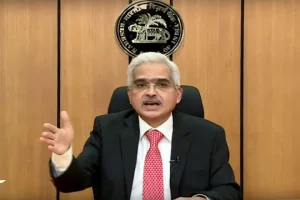With India experiencing strong economic growth, the Reserve Bank of India (RBI) is unlikely to announce any rate cuts in its upcoming monetary policy meeting, says a report from the State Bank of India (SBI).
The report suggests that domestic economic conditions are the primary factor influencing the central bank’s decisions. With India experiencing strong economic growth, potentially higher than its long-term potential output, the case for maintaining the current interest rates is strong, and the RBI may choose to pause rather than lower rates.
“Domestic conditions are paramount and with robust growth higher than potential output, case of pause exists” said the report.
The SBI report also indicated that the RBI may not follow the interest rate developments in the United States. Instead, it is likely to take an independent approach based on the evolving domestic economic situation. While global economic factors, including U.S. interest rates, often have an impact on financial markets, the RBI may focus more on local factors when deciding its monetary policy stance.
“RBI may disassociate from the interest rate developments in the US and may take independent view on the domestic rates based on evolving conditions” the report added.
Additionally, the report highlighted an important relationship between credit and deposits in India’s banking system. It noted that credit growth influences deposit growth, meaning that a decline in credit demand could lead to a reduction in deposits in the future. Therefore, it is crucial for credit growth to remain strong to ensure that deposit growth does not falter.
This can only happen if India’s investment cycle remains active, as investments drive demand for credit. Businesses and industries need loans to expand, and this in turn boosts deposits as more money flows through the banking system.
“In other words, credit granger cause deposits and hence a decline in credit will lead to decline in deposits going forward” the report added.
A strong investment cycle is, therefore, essential to maintaining healthy credit and deposit levels in the banking sector.
While some may have expected the RBI to lower rates in light of global developments, the SBI report suggests that robust domestic growth and the need for sustained credit growth could prompt the central bank to hold rates steady in the near term. The RBI’s focus appears to be on ensuring that India’s economic momentum continues without being overly influenced by global factors.




















